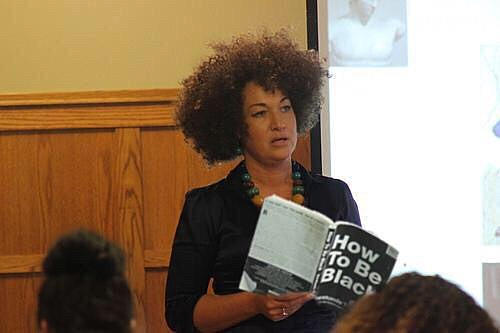Interview with Filmmaker Adu LalouschekPosted in Africa, Articles, Arts, Interviews, Media Archive on 2015-11-19 02:55Z by Steven |
Interview with Filmmaker Adu Lalouschek
Rooted In Magazine
2015-10-13
Adu Lalouschek is a 21-year-old filmmaker from London and recent graduate of the London College of Communication [University of the Arts]. Whilst studying Film and Television at University, Adu met fellow course mate Alex Wondergem, “I first remember meeting Alex when he was drumming on his lap in a seminar, he saw me and he said ‘Hey brother, where are you from?’”. It was then that they both found they were of mixed-Ghanaian descent, but they began their initial creative partnership as musicians; Alex played the drums whilst Adu was on the guitar. This soon transitioned into a film partnership that would see them co-directing and co-producing, “Our first film was a narrative film based on the Tottenham Riots which we made in 2012. But, my real passion came when we started making our documentaries in West Africa and I could see how our films were part of the changing landscape.”
Alex spent the majority of his life in Accra, whereas Adu grew up in London. They have two distinct visions which they are able to combine to create engaging work. In their second year of study, they came up with the idea for the In the Life series, where they portray interesting personal stories in Ghana. Their first in the series was Scrap Metal Men (2014), in which they followed two scrap workers in Agblogboshie – formerly the world’s largest e-waste dump. The second, Ga Fishermen (2015) documents the fast-disappearing traditions of the Ga fisherman in Accra; it premiered at BAFTA student screening and was shown at Chale Wote 2015. The third, and most recent, is Warrior’s Gym (2015) in which they capture the personal triumph of one of Ghana’s strongest men – Warrior. Both Ga Fishermen and Warrior’s Gym will be available to view at 1:54 from the 15th to 18th of October.
Aside from his films with Alex, Adu has also taken recent trips to Roses, Spain and Nsukka, Nigeria; there he spent time photographing and filming subjects. In this interview he will sharing snapshots from his travels, and films with Alex.
Annina: How does your heritage inform the stories and work you choose to do?
Adu: I’m Ghanaian and also Austrian, but first and foremost, I’m a Londoner. Alex and I are both mixed-race, and it’s obvious from our appearance when we walk around Ghana, that we’re not fully Ghanaian – we acknowledge that. Our main focus was to not make poverty-chic documentaries. We wanted to make documentaries in Accra, Ghana and not allow people to view Africa as a homogeneous place. We approached it in different ways. In our first documentary Scrap Metal Men, we didn’t have any talking head shots because we thought that was really cliché. We always made sure we filmed from a lower angle, because we didn’t want to be looking down on our subjects. By incorporating different techniques we found a way to place our feet in the documentary world – it was experimental in that sense. Our voice came through precisely because we didn’t want to dictate to the viewer. We showed some text to give context at the beginning and the end of the documentary, but we really let the viewer inform themselves through the narrative and the characters that we portrayed…
Read the entire article here.

